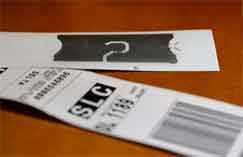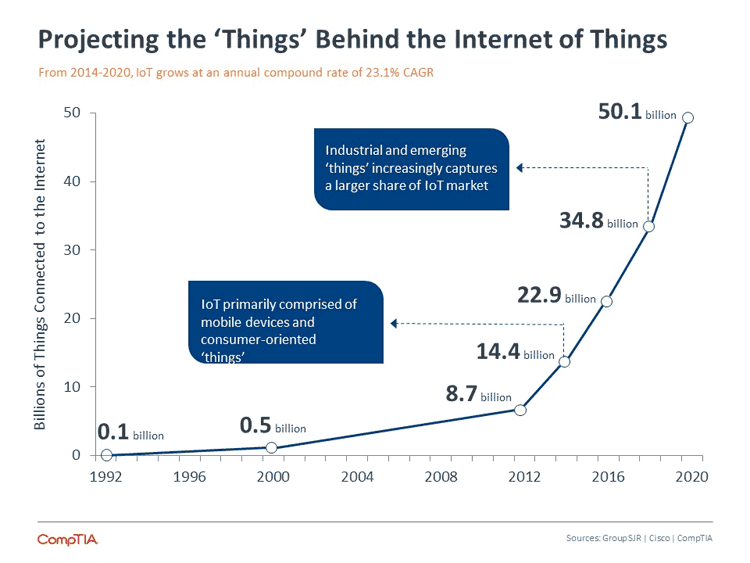Below are some of the top recent news stories relative to RFID, the Internet of Things, and Automated Dats Collection (AIDC).
E-Textiles are Coming, as UK Company Finds Way to Embed RFID Chip into Fabric
The field of "e-textiles" is buzzing with activity, as dozens of companies and university researchers are exploring way to make smart apparel.
Supply Chain Digest Says... |
 |
| RFID signals are picked up by receivers 99.85% of the time at Delta, vs 90% for barcode baggage tags. |
 |
What do you say? |
| Click here to send us your comments |
 |
| Click here to see reader feedback |
|
|
In mid-August, researchers at Ohio State University announced they had reached a milestone with the ability to embroider circuits into fabric with 0.1 mm precision - the perfect size to integrate electronic components such as sensors and computer memory devices into clothing.
With this advance, OSU says its "researchers have taken the next step toward the design of functional textiles - clothes that gather, store, or transmit digital information. With further development, the technology could lead to shirts that act as antennas for your smart phone or tablet, workout clothes that monitor your fitness level, sports equipment that monitors athletes' performance, a bandage that tells your doctor how well the tissue beneath it is healing."
And also likely RFID tracking. Today, RFID tags can of course be attached to clothing, either as a standalone chip or embedded in a label construction. In these applications, the tag can often be easily removed, may be considered ugly by some consumers, and cannot play any real role in other tracking once the item has been purchased (though that is considered a good thing by many privacy advocates.
Now, a UK-based firm named Adetexs is making thread-sized RFID tags can be sewn into the garment by the manufacturer. When a consumer purchases the item, they would be unable to detect the tiny tag when wearing it.
"Current RFID tags are difficult to manufacture and incorporate into textiles because they're bulky and they don't guarantee washability or durability," Dr. Anura Rathnayake, founder and CEO of Advanced E-textiles, recently told technology writer Haniya Rae. "They are also easily recognizable, hence making the garment more vulnerable for theft."
The embedded tags could be used to validate an expansive branded garment or other item's authenticity.
Rathnayake's idea is that these undetectable threads could track the lifecycle of a garment, contain information about the garment's fiber contents and age, and where it was bought. Once a consumer outwears the garment, they could return it to the brand's retail store for recycling. The old threads could theoretically be spun into new items, eventually reducing production costs and waste.
The new thread RFID tags, expected to be available in 2017, for now will only make sense for very high end luxury brands. That's because right now they cost several dollars apiece, and thus would only be economically feasible in goods costing in the hundreds of dollars each range.
Rathnayake is aware that his thread is too costly for most retail brands outside of the luxury goods market to use at present, but is confident that once luxury retailers get on board, he can drive manufacturing prices down to a cost that wouldn't break the bank for moer mainstream apparel.
Delta Launches RFID Luggage Tracking
Delta Airlines recently gave the media an update on its on-going $50 million investment in an RFID tracking system for passenger luggage.
With the Delta system, as luggage enters the belly of a plane, a reader on the belt mechanism will scan that bag tag and verify that it has been loaded onto the correct aircraft.
(See More Below)
|
CATEGORY SPONSOR: SOFTEON |
|
|
| |
|
|
 RFID signals are picked up by receivers 99.85% of the time, according to Bill Lentsch, Delta's senior vice-president for airport customer service and airline operations. That compares with an approximate 90% success rate for manual scanners. RFID signals are picked up by receivers 99.85% of the time, according to Bill Lentsch, Delta's senior vice-president for airport customer service and airline operations. That compares with an approximate 90% success rate for manual scanners.
Probems with reading barcode luggage tags – usually due to label orientation issues - is largely to blame for the roughly 23 million pieces of airborne luggage that get lost or delayed worldwide each year. The RFID system should reduce Delta share of that number, and the RFID system will also improve worker productivity by enabling a "hands-free" work environment versus handheld bar code scanners used by some baggage handlers.
Delta is in the midst of a system rollout that will ultimately include RFID readers on 1,500 belt loaders in 84 of its busiest airports, with a wider network of 4,600 RFID readers, 3,800 printers, and 600 pier-and-claim readers across a labyrinth of conveyor belts in 344 airports, allowing it to pinpoint any missing item's last-known location.
Delta is reported to be paying less than 10 cents per RFID bag tag, versus 3 cents for a traditional bar code label.
The higher costs can be partly justified by reduced logistical expenses and passenger compensation, not to mention the inevitable boost to customer satisfaction. Passengers will be able to track the progress of their bags via the Fly Delta mobile app.
Predicting a 10% improvement in misplaced luggage for Delta once the RFID system is fully operational later this year, Lentsch told The Wall Street Journal a few months ago that: "We have this desire to drive our defect rate to zero. We know that's going to take an awful lot."
Internet of Things By The Numbers
IT industry trade association CompTIA has just released results from a survey of more than 500 business and IT executives on the Internet of Things.
A few of the top results include:
• 80% of organizations have a more positive view of IoT today compared to a year ago
• The number of connected things, from computers to household monitors to cars, is projected to grow at an annual compound rate of 23.1% between 2014 to 2020, reaching 50.1 billion things in 2020.

• 60% of organizations have started an IoT initiative, 45% of which were funded by a new budget allocation. An additional 23% of companies plan to start an IoT initiative within a year.
• The top 5 expected benefits are:
1. Cost savings from operational efficiencies
2. New/better streams of data to improve decision-making
3. Staff productivity gains
4. Better visibility/monitoring of assets throughout the organization
5. New/better customer experiences.
• A majority of businesses (61%) report having their IoT initiative as "enabling and extending" technology as opposed to regarding it as a separate and distinct activity (37%).
• 57% of respondents believe their organization is very well equipped or mostly well equipped to manage the security component of IoT.
What do you think of the RFID threads, great idea or not? Any other reaction to these round up stories? Let us know your thoughts at the Feedback section below.
Your Comments/Feedback
|